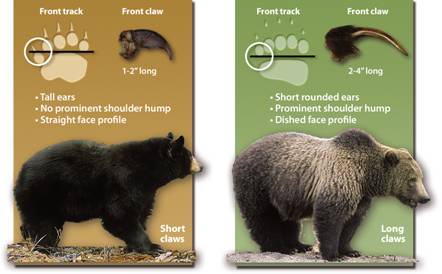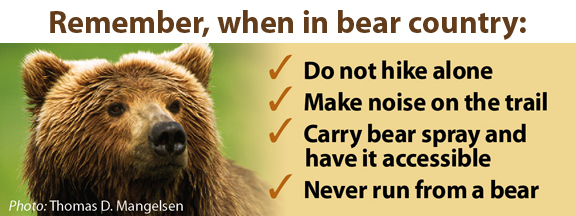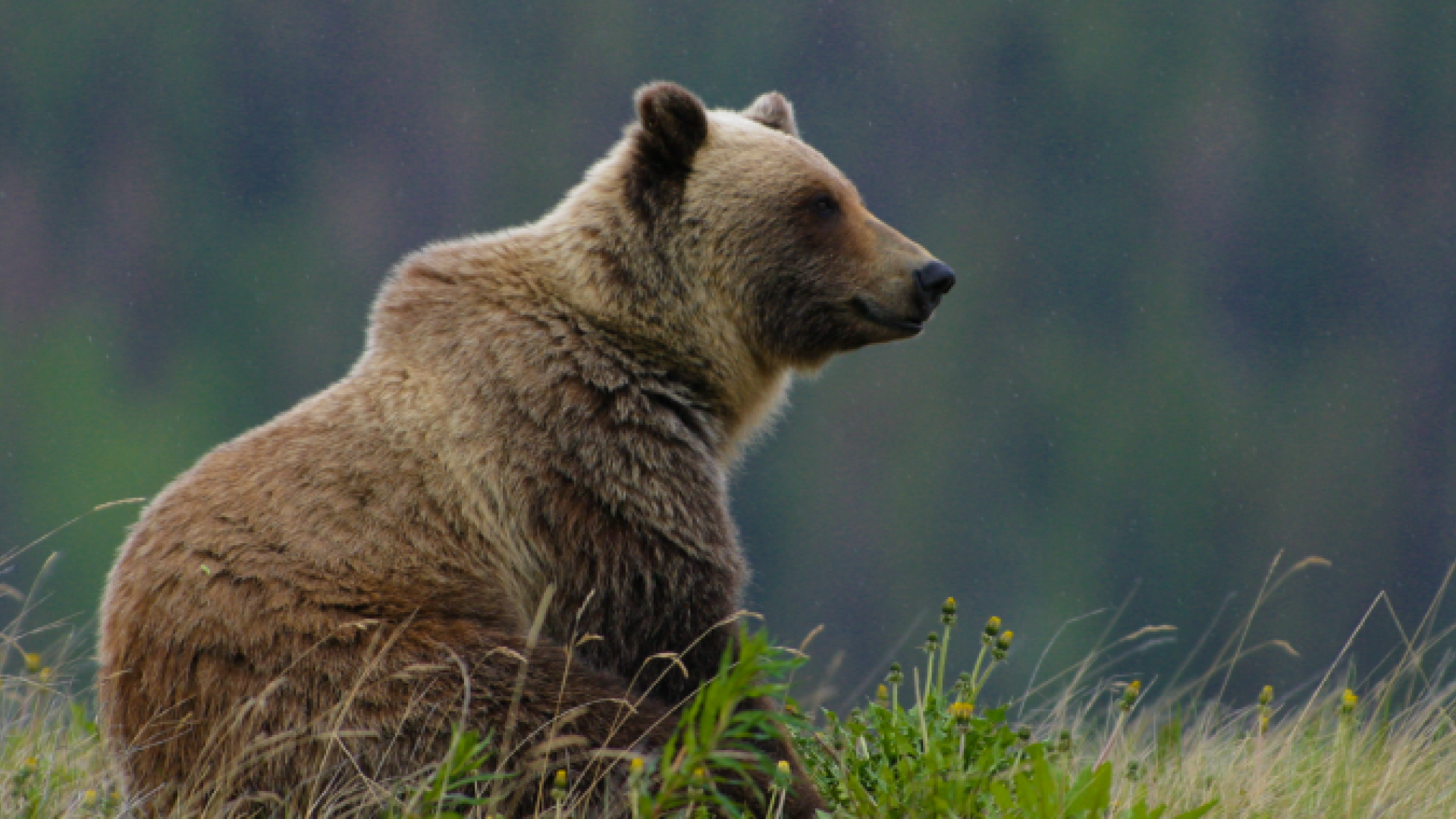Although less common than the black bear, the Squamish-Lillooet Regional District is also home to grizzly bears. Grizzly bears (Ursus arcutus) have been seen in the Bridge River Valley, Soo Valley as well as the Upper Squamish Valley which is reportedly home to approximately 59 grizzly bears. While encounters with grizzly bears are not very common, it is important to know the difference between a black bear and grizzly bear and how to prevent encounters.
Difference between a Black Bear and a Grizzly Bear

Avoiding Encounters at Home
Bears are attracted into our neighbourhoods because of available non-natural food like garbage and fruit. We can reduce the potential for human-bear conflict by simply managing attractants. Our neighbourhoods must be porous to wildlife activity. This means ensuring that wildlife can move throughour community without being attracted to non-natural food. We don't want to invite wildlife to stop and stay.
Bears are opportunistic omnivores and will return time and time again to a readily available food source. However, if the attractant is secured or removed, the bear will move on.
- Always use lockingresidential garbage totes and keep garbage adn recycling items in a secured location at all times.
- If you have curbside garbage sevice, put your garbage tote curbside between the hours of 5 a.m. and 7 p.m. only on collection day and never the night before.
- Reduce odours by freezing the smelly stuff in a Ziploc bag and dispose of the bag on collection day.
- Rinse out all recycling material to reduce odours.
- Don’t use birdfeeders during bear season or hang feeders at least 10 feet off the ground and at least 10 feet away from trees or climbable structures. Ensure seeds are not collecting underneath the feeder by using a catch tray.
- Pick fruit as it ripens and don’t let it collect on the ground. Learn more about local fruit gleaning projects across the SLRD.
- Ensure livestock pens & coops are surrounded by a well maintained electric fence.
- Maintain an odourless compost by liming, turning frequently, cutting food into small pieces, layering greens with browns and never add meat, fish, fats or oils.
- Consider an indoor worm composter.
- Feed pets indoors and keep all bowls indoors.
- Keep barbeques clean and grease free by burning an extra 5 minutes after removing food and remove or clean barbecue tools.
- Move fridges and freezers indoors or lock them.
- Talk to your neighbours about managing their attractants.

Always report wildlife sightings or injured wildlife and/or encounters to the BC Conservation Officer Service 24-hotline at 1-877-952-7277 (RAPP) or online at www.rapp.bc.ca

(Sources: Wild Safe BC, District of Squamish, Western Wildlife Outreach)

